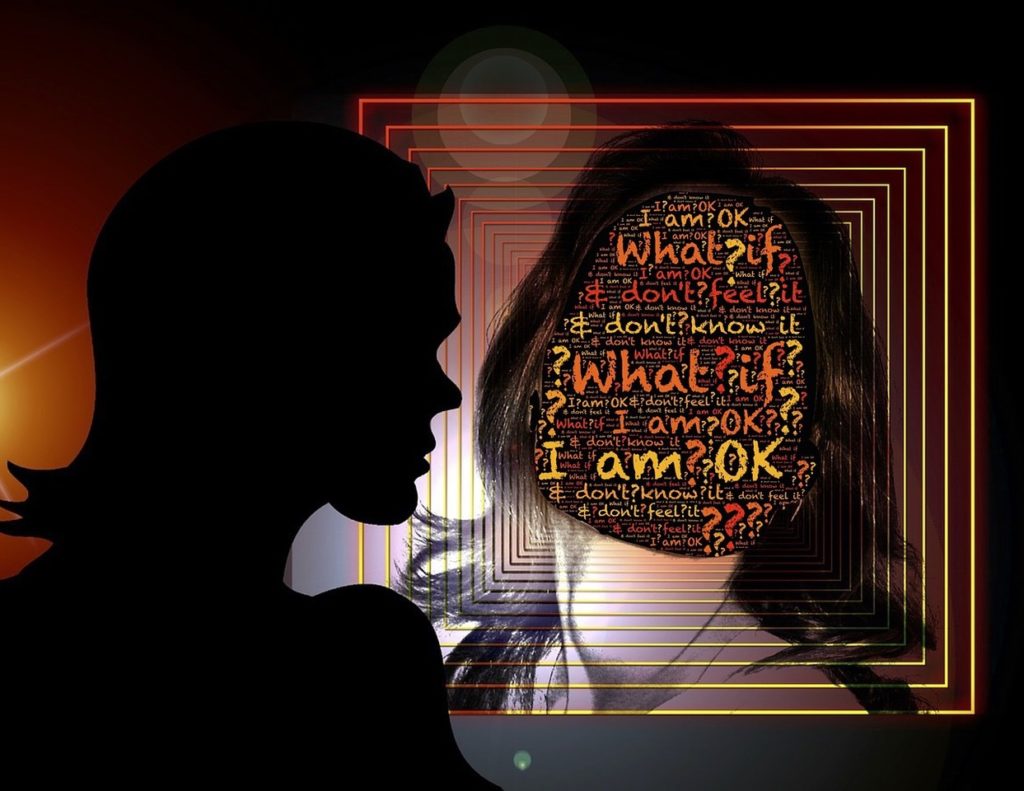
In their recently published paper, “Vulnerability of Individuals With Mental Disorders to Epistemic Injustice in Both Clinical and Social Domains” (Ethics & Behavior), Rena Kurs and Alexander Grinshpoon discuss the application of the philosophical notion of epistemic injustice to the experiences of people who have a psychiatric diagnosis, following a series of very interesting papers on this topics (among which Crichton, Kidd and Carel, 2017; Sanati and Kyratsous, 2015).
Epistemic injustice
The notion of epistemic injustice has been developed in Miranda Fricker’s book, Epistemic Injustice: Power and the ethics of knowing. Epistemic injustice occurs when a person’s capacity as a knower is wrongfully denied. This denial can manifest in two ways:
- Testimonial injustice, when a person’s credibility or authority is challenged for no good reason and thus her testimony is either not believed or not trusted;
- Hermeneutic injustice, when a person lacks the resources to interpret her own experience due to the person belonging to a stigmatised and vulnerable group.
An example of testimonial injustice is when a person’s treatment preferences are dismissed because the psychiatric diagnosis attributed to that person suggests that she cannot think clearly or rationally about her options. Another example is when a person’s claim that she has been abused is dismissed because the claim is being taken as evidence that the person has persecutory delusions.
An example of hermeneutic injustice is when a person who hears voices, but who has internalised societal stereotypes that unusual experiences such as hearing voices are wholly negative, feels shame and distance from her voices, even though they sometimes help her to cope with stressful events in her life.

Sometimes a person’s credibility is wrongfully denied or the person lacks the resources to interpret her own experience due to her belonging to a stigmatised group.
Methods
The paper by Kurs and Grinshpoon refers to a number of examples found in the literature where people with psychiatric diagnoses who made true reports relevant to their case were unfairly dismissed because of negative stereotypes associated with their diagnoses. Some first-person accounts are also cited directly.
In addition to this sort of evidence for epistemic injustice, the authors also refer to evidence about the relationship between patients and clinicians (Marvel et al., 1999). We can add to this that there is an emerging body of empirical work conducted by Rose McCabe about missed opportunities in communications between clinicians and patients in a mental health context that suggests the pervasiveness of epistemic injustice and the possibility of overcoming it by addressing the dynamic of the clinical encounter. For instance, McCabe and Healey (2018) argue that better therapeutic relationships and better outcomes are attained when psychiatrists take the patients’ perspective in discussing phenomena with contested meaning such as hallucinations and delusions and attempt to construct a shared understanding. Close examination of interactions between clinicians and patients can offer independent evidence for the pervasiveness of epistemic injustice in a mental health context and have the potential to inform future training of mental health professionals.
Kurs and Grinshpoon go on to offer some further analysis of the problem of epistemic injustice, deploying the notions of participant perspective and the informational perspective (Hookway, 2010). The authors claim that ideally the patient should actively participate in discussion about causes and treatment for mental health issues—this includes not only exchanging ideas but also raising questions and proposing alternatives. Further, the patient should be regarded as a source of information (and not just as a recipient of information).

The patient should actively participate in discussion about causes and treatment for mental health issues.
Results and conclusions
Kurs and Grinshpoon borrow a list of useful guidelines for clinicians from American physician David Dugdale and his colleagues (Dugdale et al., 1999) that could reduce the risk of epistemic injustice for people with a psychiatric diagnosis:
- Actively listen to what the patient has to say rather than trying to control the interview.
- Support and encourage the patient by paying attention to the patient’s emotional agenda.
- Ask the patient “What do you think is going on?”
- Take advantage of the patient’s personal knowledge.
- Establish agreement on goals of individual visits and medical care by involving patients in their care.

Can guidelines for clinicians reduce the risk of epistemic injustice?
Strengths and limitations
It is vital to investigate the notion of epistemic injustice, the notion that we can be wronged specifically in our capacity as knowers, with the result that either we are not properly heard by others (testimonial injustice), or even prevented from accessing important information which helps us to understand our own social experiences (hermeneutic injustice), in the context of mental health. Through incorporating crucial insights from lived experience, this article stresses the urgency of that investigation: we are completely unwarranted to perceive someone who is undergoing mental distress as wholly ill and wholly irrational, and by doing so we can prevent them from sharing crucial information about themselves, often with dire consequences.
As we saw, the paper by Kurs and Grinshpoon considers some potential strategies for eliminating epistemic injustice. One would hope that the guidelines for patient-focused care developed by Dugdale and his colleagues would be minimum requirements in clinical interactions, and that such guidelines were developed in the first place perhaps gives someone without experience of this sort of clinical interaction an insight into why epistemic injustice risk is real and widespread in mental health contexts.
But alike much other work in this literature, the focus of the paper is on ameliorating testimonial epistemic injustice, focusing on how people experiencing mental distress are heard and interpreted. There is less of a focus on addressing hermeneutic injustice, which is about ensuring that epistemic barriers are not in place for individuals themselves to understand and articulate their experiences, and to self-advocate as a result. We think that, in general, there could be much more research attention on understanding and ameliorating hermeneutic injustice in both clinical and broader societal contexts around mental health.

We need more focus on hermeneutic injustice in mental health, ensuring that everybody has the resources to understand their own experiences.
Implications for practice
Clinicians and care-givers should have the opportunity to learn about epistemic injustice, and to put into practice suggested strategies to reduce the risk of perpetuating it in mental health contexts but given the trend in much academic research to focus on testimonial injustice, we need to draw on a wider evidence base to put into practice strategies for ameliorating hermeneutic injustice. We should draw on insights from lived experience and survivor movements, and support initiatives which enable these movements to construct shared epistemic resources for self-understanding. One way to build these resources could be through establishing opportunities to collectively challenge dominant societal narratives which connect experiences of mental illness and distress with irrationality. If we take these opportunities, we might recognise, together, that mental health and mental distress are more like states on a continuum – one that we all inhabit.
We were inspired by this thought to run a series of discussion-driven philosophy workshops with people with a range of backgrounds in mental health (those with lived experience of unusual beliefs and experiences, mental health advocates, clinicians and service providers) which provided the opportunity to collectively disarm societal stereotypes about mental health. Participants were then able to use a philosophical framework for reconstructing experiences of mental health to account for their deeply meaningful and positive features rather than focusing only on negative aspects. Philosophy is a useful tool for this project, because it gives us conceptual resources to critically assess societal assumptions, resources which are strengthened by inviting insights from lived experience. In testimonials, participants spoke of the workshops broadening their understanding of different philosophical models of mental health, and helping them to feel empowered to advocate both for themselves and for others.
Thanks to the support of project PERFECT and Mind in Camden, we created a resource pack so that you can facilitate your own philosophy groups (no prior experience is needed), and we think that philosophy groups like these could form one of a number of strategies to create opportunities for restoring hermeneutic injustice.

We believe that philosophy groups can be an effective strategy for restoring hermeneutic injustice, establishing opportunities to collectively challenge dominant narratives.
Conflicts of interest
Sophie Stammers developed the resource pack for the Philosophy Workshop series mentioned in the post, with the support of Mind in Camden and Project PERFECT, funded by the European Research Council and led by Lisa Bortolotti. The pack is free for everybody to download, adapt, and use.
Links
Primary paper
Rena Kurs & Alexander Grinshpoon (2018). Vulnerability of Individuals With Mental Disorders to Epistemic Injustice in Both Clinical and Social Domains. Ethics & Behavior, 28:4, 336-346. doi: 10.1080/10508422.2017.1365302.
Other references
- Project PERFECT
- Mind in Camden
- Resource pack for Philosophy Workshop series
- Imperfect Cognitions post on the Workshop series
Crichton, P., Carel, H., & Kidd, I. J. (2017). Epistemic injustice in psychiatry. BJPsych Bulletin 41(2), 65–70. doi: 10.1192/pb.bp.115.050682
Dugdale, D.C., Epstein, R. & Pantilat, S.Z. J. (1999). Time and the patient-physician relationship. Journal of General Internal Medicine 14(Suppl 1): S34. doi: 10.1046/j.1525-1497.1999.00263.x
Marvel, M.K., Epstein, R.M., Flowers, K. & Beckman, H.B. (1999). Soliciting the Patient’s Agenda—Have We Improved? JAMA 281(3): 283–287. doi: 10.1001/jama.281.3.283
Fricker, M. (2007). Epistemic Injustice: Power and the Ethics of Knowing. Oxford University Press.
McCabe, R. & Healey, P. G. T. (2018). Miscommunication in Doctor–Patient Communication. Topics in Cognitive Science 10(2), 409–424. doi: 10.1111/tops.12337
Sanati, A. & Kyratsous, M. (2015). Epistemic injustice in delusions. J Eval Clin Pract 21: 479-485. doi:10.1111/jep.12347
Photo credits
- Photo by Tachina Lee on Unsplash
- Photo by Matthew Henry on Unsplash

[…] Overcoming injustice in mental health: is there a role for philosophy? […]
Before any of this applies, you need to factor in the power imbalance in most psychiatric consultations. When I consult a professional, I’m applying for benefits that she holds in her power. Consciously and also instinctively (as a socialised person, if you like), I adapt my presentation to match the cues she gives for agreeing how I may deserve those benefits. I don’t have to have internalised anything to do this (I may or may not agree with any or all of the cues given), I just need to recognise that I’m the supplicant. I’m not clear whether this is included in your definition of “Hermeneutic injustice”.
Thank you for your comment. We agree that it’s really important to recognise that power imbalances arise in lots of interactions in mental health contexts. Maybe there is room in the framework to accommodate lots of different subcategories of epistemic injustice – and I think that this is exactly the sort of question a philosophy group of the kind we’re advocating could discuss. If I have understood correctly, perhaps the case you describe is a sort of testimonial injustice because you have to adopt a particular method of communication (which perhaps is not authentic to yourself?), but which is needed in order for you to participate in an interaction that the professional is dictating, given that she holds power. There is a clear problem in cases where professionals hold power like this, especially when people with lived experience have insights that it would be better for the professional to hear, understand, and take account of. I agree that building hermeneutic resources for a better understanding of mental health is certainly not the only thing we should do to improve the lives of people with lived experience of mental distress – there is certainly an onus on people in positions of power to learn about, and to actively put into practice strategies to guard against perpetuating injustice of all kinds, epistemic and non-epistemic. What we’re suggesting is that in amongst the varieties of advocacy and activism we can do around mental health, holding philosophy groups could make a small (but hopefully not insignificant) difference.
Thank you for your comment Ian and your reply Sophie. I’ll throw in another personal example of the complexities of presentation to mental health practitioners. In general, I, like most others, make an effort to mask my neurodiversity but when meeting with a mental health professional especially for the first time (because that first impression tends to guide the rest of treatment) I feel caught between my usual social instinct of professionalism and fearing that appearing too mentally well may undermine my identity and misrepresent myself such that the care is not helpful. The label given my them I place more value than a self diagnosed label, and thus if I present wrong it’s a serious threat to both care and to my sense of identity. Once mental healthcare providers see your set of issues you’ve come with through a particular lens (trauma, anxiety, OCD, bipolar) it is very difficult to shift lenses. You come to a therapist with a power imbalance and they become the authority on the truth of you more than you are– they have to be or therapy would arguably not work. Those who have mental health issues already have a weakened trust in their own ability to assess themselves and thus I, only somewhat consciously, understand the only power I have is in this performance– which I’d rather not be a performance but which inevitably is to a greater or smaller degree.
Here’s an excerpt from one of my journals before meeting with a new therapist that explain the dilemma.
“Once you start it’s hard to go back and rewrite the beginning. You are stuck with whatever person you played in that moment. I am trying to play an adult right now but that might be a mistake. After all, if I come off too stable she will misunderstand me and the seriousness of my state. My state seems very separate from me right now. I hope I can remember what it is properly. I try to beckon it forth a little, after all if I can break down in tears I won’t have to worry about describing it because she’ll be able to see and question it for herself”
as a person with a weak trust in my ability to summarize my state, I wish I could trust to be in the state so that she could be the primary observer instead of me, but that is rarely how sessions are able to play out especially before trust is established.
-I’m working through some of this for my senior thesis at Webster University :)
Epistemic injustice in context of cultural and belief diversity, when formulating diagnosis of Patient by clinicians of contrary background in mental health. Especially in relation to or presence of communication barrier(language) is becoming an element of concern I recently observed. In my opinion, the above is usually underrated.
There is a role for philosophy, of course. Epistemology and ethics would be the two main contributors in my opinion. Revisiting the epistemology of clinical interviews would also be a must. (For instance psychiatric description of delusions does not match the epistemological description of what a delusion is…)
There’s also a role for rational sociology (not so much “social-justice-warrior-type” sociology). Including sociology of the medical system and sociology of the course of disease.
There clearly is a need for more rationality on the topic of mental health, and more importantly, more rationality in mental health research politics! Also a need for a rational appraisal of when treatment is going too far… For the moment, we’re pretty much objects at the mercy of any given doctor’s particular ideological beliefs. This is not acceptable.
Thank you for your comment! Sophie has recently published a paper on the experience of facilitating philosophy groups to discuss mental health and it is open access, in case you are interested: https://link.springer.com/article/10.1007/s11019-020-09961-4